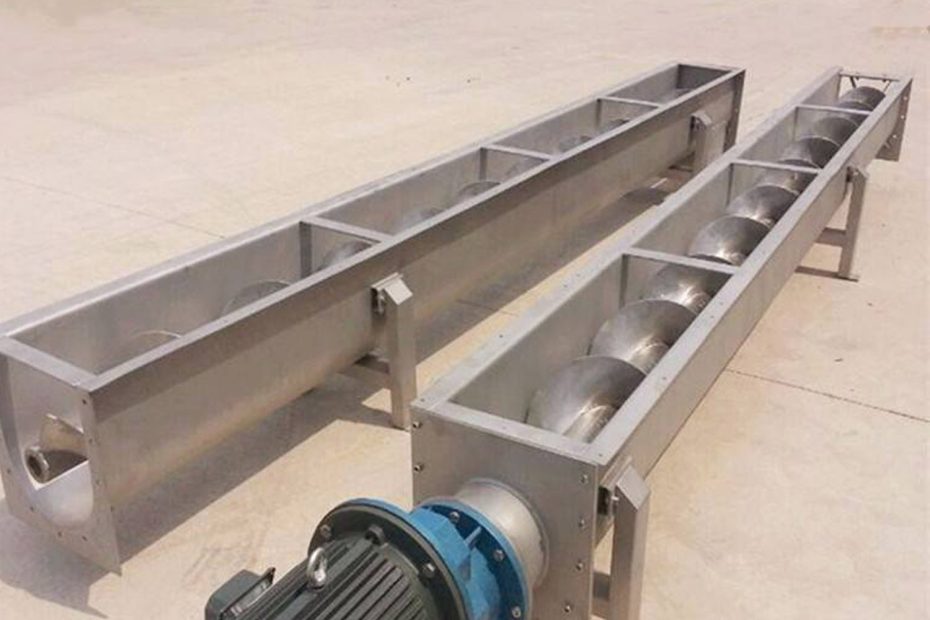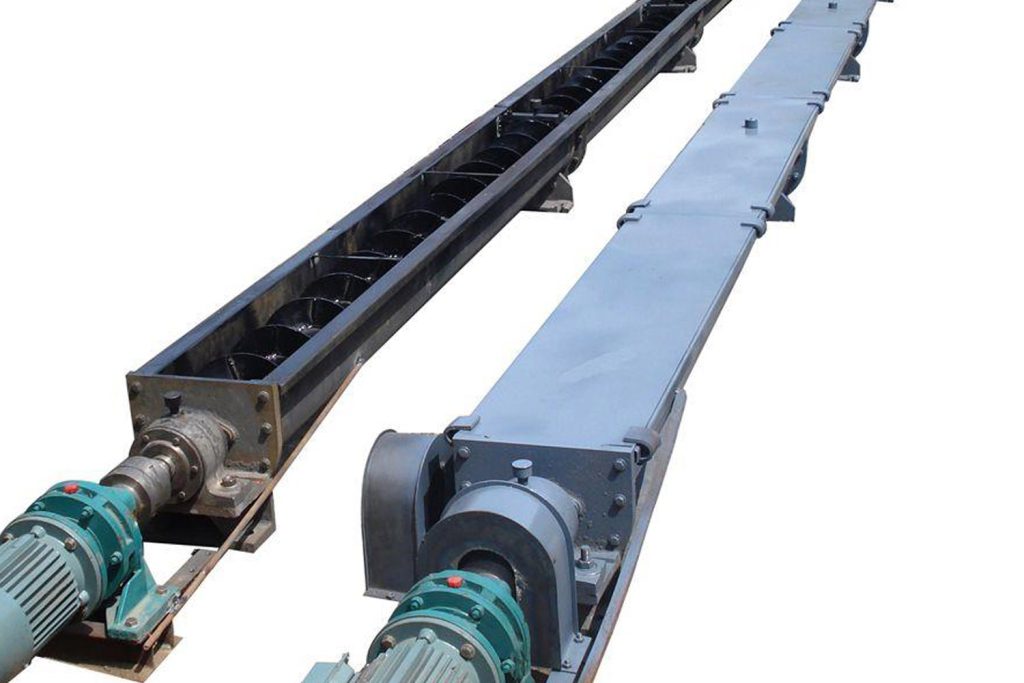Selecting the right conveyor system is a critical decision that can significantly impact material handling efficiency. With a multitude of conveyor types available, buyers might find it challenging to discern the ideal solution for their specific needs. A product feasibility test is highly recommended to determine the most suitable conveyor based on material characteristics, distance requirements, and desired throughput.
However, to aid buyers in their initial selection process, this guide explores the advantages and applications of various conveyor types. We will focus on the flexible screw conveyor, a versatile and cost-effective option that suits materials with specific bulk densities and distance limitations.
The Versatility of Flexible Screw Conveyors
Among the array of conveyor options, the flexible screw conveyor stands out as a simple yet highly versatile solution. This type comprises a stainless-steel spiral rotating within a UHMWPE food-grade tube, making it suitable for a range of applications.
Top 5 Advantages of Flexible Screw Conveyors
- Cost-Effective Solution: The flexible screw conveyor is known for its affordability, making it an attractive choice for buyers seeking efficient material handling without breaking the bank.
- Material Suitability: These conveyors are ideal for materials with a bulk density of up to 2.5 kg/l, making them suitable for a wide range of products.
- Distance Capabilities: A single unit can carry materials up to a maximum distance of 20m, and multiple units can be combined to extend this distance as needed, offering scalability and adaptability.
- Customizable for Specific Materials: By using a flat version of the spiral, cohesive or fine materials can be effectively conveyed, enhancing the system’s suitability for diverse materials.
- Considerations for Smooth Operation: To ensure smooth operation, it is essential to maintain a generous head of material in the feed hopper, aiding the elevation of materials during startup. Running the conveyor full of material is crucial to avoid excessive noise and wear during operation.
Top 3 Applications of Flexible Screw Conveyors
The flexible screw conveyor’s versatility extends to various industries and material handling scenarios. Let’s explore some of its primary applications.
- Food Processing Industry: In the food industry, where hygiene is paramount, flexible screw conveyors shine due to their stainless-steel construction and food-grade tubes. They effectively handle ingredients, powders, and other food products with ease.
- Pharmaceutical Sector: Pharmaceutical manufacturers demand precision and adherence to strict operating standards. The gentle material handling provided by flexible screw conveyors ensures delicate products are transported safely and efficiently.
- Chemical and Petrochemical Industries: Handling bulk chemicals and petrochemicals requires robust yet flexible conveyor systems. Flexible screw conveyors accommodate a wide range of chemical materials, making them suitable for diverse applications in these industries.
Advantages of Flexible Screw Conveyors in Various Industries
- Food Processing: Hygienic stainless-steel construction for safe handling of food products.
- Pharmaceutical: Gentle handling for delicate pharmaceutical materials.
- Chemical and Petrochemical: Versatility in handling a broad spectrum of chemical materials.
Innovative Solutions with Flexible Screw Conveyors
Flexible screw conveyors can be integrated into innovative systems to address specific challenges in material handling.
- Packing Systems: Flexible screw conveyors efficiently transport materials at steep angles to packing systems. These systems prioritize hygiene and dust containment, aligning with the rigorous demands of the industry.
- Handling Abrasive Products: While wear can be a concern with abrasive materials, it is significantly reduced with flexible screw conveyors. For other materials, the conveyors boast an almost indefinite lifespan, resulting in reduced maintenance and replacement costs.
Key Specifications of Flexible Screw Conveyors
| Specification | Value |
|---|---|
| Material Suitability | Bulk density up to 2.5 kg/l |
| Maximum Distance | 20m (single unit) |
| Maximum Throughput Rate | 20,000 kg/hr |
Conclusion
Conveyor selection may seem daunting, but understanding the advantages and applications of different types can ease the process. The flexible screw conveyor, with its cost-effectiveness, material versatility, and adaptability, stands as a reliable solution for various industries.
From food processing to pharmaceuticals and chemicals, these conveyors demonstrate their ability to handle diverse materials while ensuring smooth and efficient operations. Furthermore, their integration into innovative systems showcases their potential in meeting demanding industry standards and overcoming material handling challenges. By utilizing this guide as a starting point, buyers can make informed decisions and invest in conveyor systems that optimize their material handling processes effectively.

